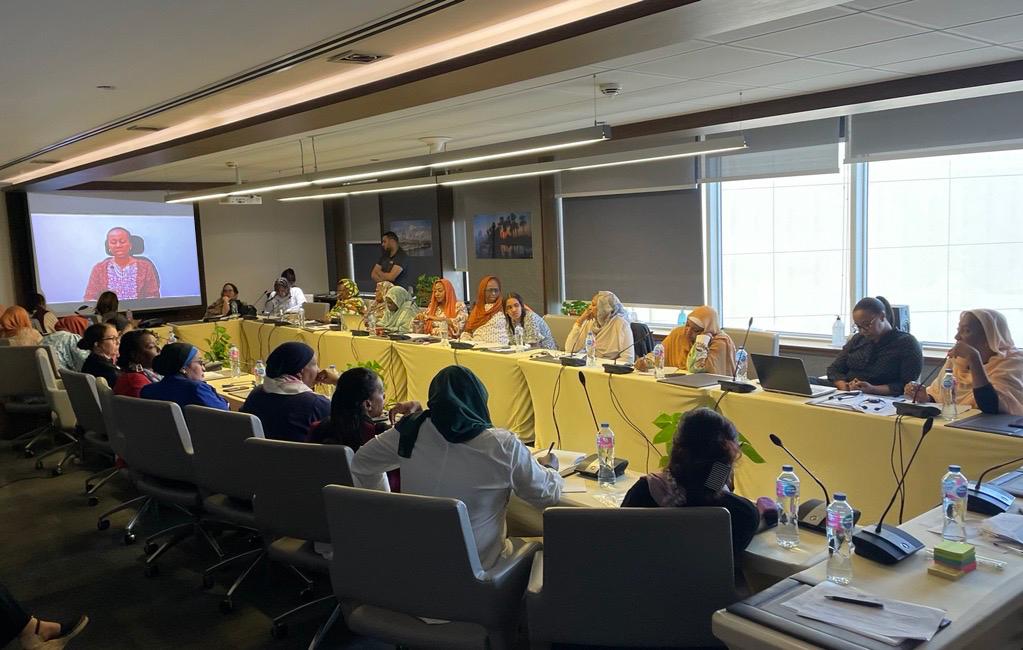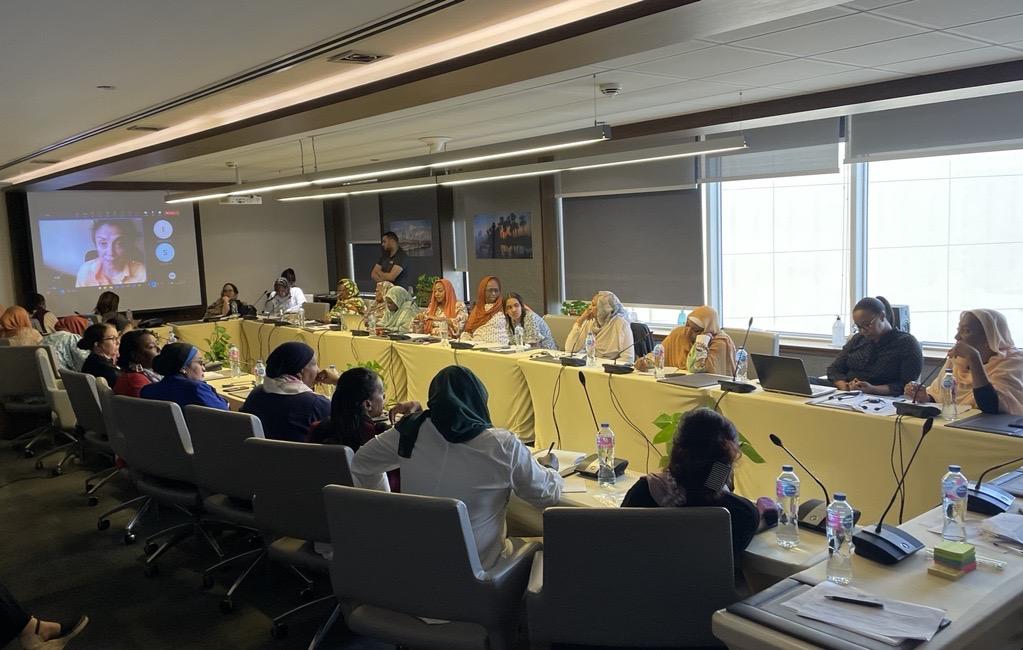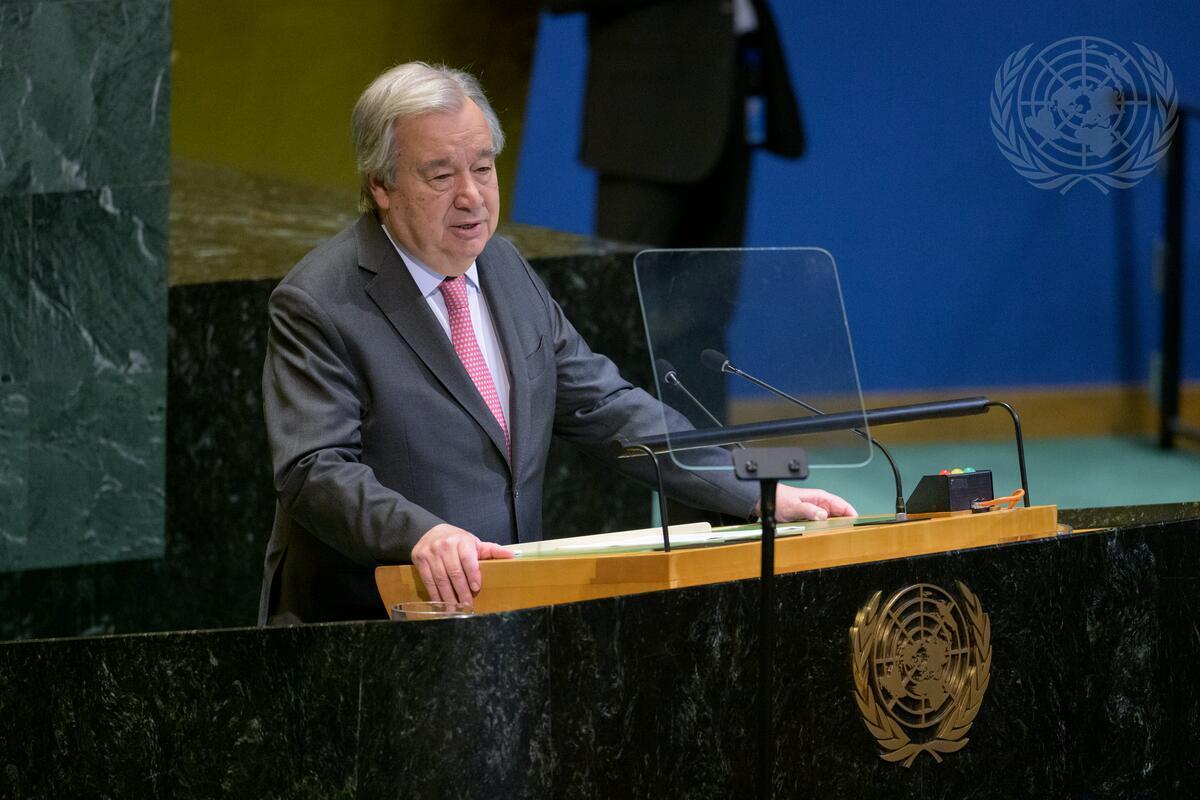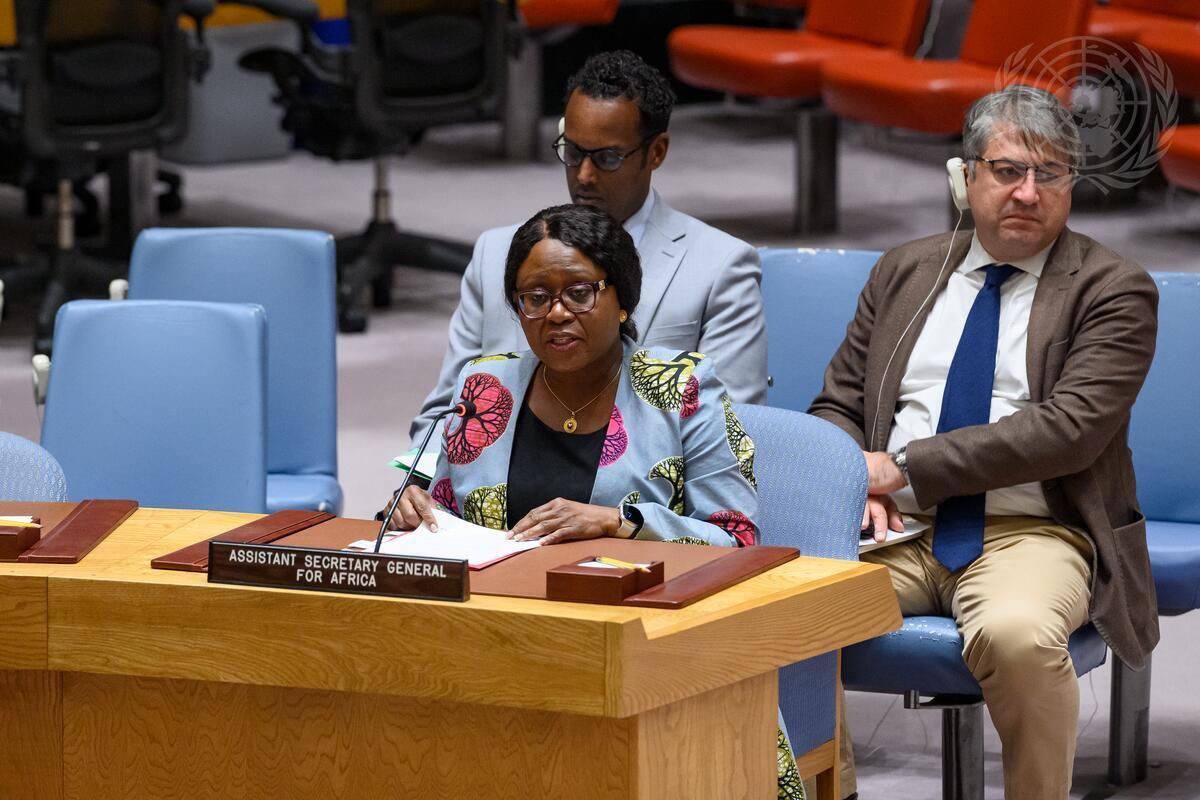Representatives from more than 20 existed and newly emerging women's anti-war initiatives from various civic and political backgrounds and geographical locations within Sudan, gathered in Cairo to coordinate their efforts towards peace enforcement in Sudan.
Organized by UN Women and UNITAMS, as well as Crisis Management Initiative (CMI - the Marti Ahtisaari Peace Foundation) and Inclusive Peace, the Cairo meeting entitled “Strategy Meeting: Towards Enhancing Coordination among Women’s Groups” aimed to provide a space for women’s rights organizations and activists to explore the concept and benefits of coordinating their advocacy as well as mechanisms for enhanced collaboration in future activities.
The workshop which was held from 29 to 31 October in the premises of the EU Delegation followed a series of virtual consultations organized by UNITAMS Gender staff last August and September.
Unwavering support by UNITAMS to women’s participation in peace processes
In her video message to the Sudanese women participating in the workshops, Ms. Clementine Nkweta-Salami, Deputy-Special Representative of the Secretary-General, Officer-in-Charge of UNITAMS, Resident Coordinator, Humanitarian Coordinator (DSRSG/OIC/RC/HC), stressed that UNITAMS remains unwavering in its dedication to championing and safeguarding the active and significant involvement of women in forthcoming peace and political proceedings.
“Our commitment to supporting and defending the full and meaningful participation of women in future peace and political processes is undiminished”, she said, adding that this commitment is shared by our international partners, including those who joined the Sudanese women at their Cairo meeting.

Ms. Nkweta-Salami commended the collaboration and bridge-building efforts among Sudanese women, as they actively seek ways to coordinate and work together, adding that these efforts “will no doubt set an example for other sectors in Sudan to follow.”
Despite the achievements, challenges remain
After the conflict erupted between the Sudanese Armed Forces (SAF) and the Rapid Support Forces (RSF), various Sudanese women's groups mobilized to address the situation. They took on multiple roles in response to the war. These roles included actively promoting peace by denouncing the hostilities and advocating for the participation of women and young women in humanitarian efforts and peace initiatives.
They initiated the work through the formulation of political, relief and rights initiatives that aim to end the war through enhancing the delivery of humanitarian assistance, coordinating, and arranging shelters and hosting IDPs, the formation of emergency rooms to help with the distribution of relief and respond to women special needs. They also continue to monitor and document human rights violations, gender-based violence and sexual violence women and girls suffer on a daily basis in various States in Sudan. They further follow up on issues of missing persons and captives/ Sabaya in coordination with relevant civil initiatives.
In their remarks at the end of the workshop, the Sudanese women emphasized that despite the significant roles they played, they are still facing “types of structural and patriarchal violence”. They are continuously excluded from participating in formal and informal political processes as it evidently appeared in the preparatory meeting of the civil democratic forces held in Adis Ababa on dedicating 30% for women participation, which they rejected.
“This is deemed as a setback for Sudanese women rights and shows the non-commitment of these forces regarding the fair participation of women”, they said.
Sudanese women unite to enhance coordination and advocacy
Galvanized by the war, but also by the emerging trend of diminished attention to women’s messages and women’s representation in the various civilian initiatives, the participating groups reached agreement on three important outcomes:
- A set of guidelines for coordination;
- To form a coordination group for women’s organizations that are monitoring and documenting human rights violations in Sudan; and
- To form a coordination group for women’s organizations advocating for women’s political participation and the Women, Peace and Security (WPS) agenda.
In addition to these formal outcomes, the participants reflected throughout the meeting on two recent developments:
Firstly, the reconvening of the Jeddah process, occurring without women’s participation or clear gender taskings; and secondly the emergence from meetings in Addis Ababa of the ‘Taqadum/progress coalition’, with its gender-blind outcomes and diminution of the women’s participation quota.

During the meeting, UNITAMS Gender and UNWomen discussed the Jeddah issue with the UNITAMS Political Director, Ms. Stephanie Koury, and preparatory steps are being supported.
The coordination groups are currently developing their statement in response to ‘Taqadum coalition’.
Recommendations and demands
Based on the above, the messaging, recommendations and demands of the Sudanese women were clear!
In their remarks at the end of the workshop, they stressed the importance of “a comprehensive, immediate, and unconditioned ceasefire; a commitment to an effective and fair participation of women in all political and peace processes, ensuring the integration of their causes and rights in any political provision and commitment in response to the international community's commitment to UNSCR 1325”.
They urged states “not to support any party to the conflict and further escalate the war in Sudan”.
They asked “to establish a comprehensive and transparent mechanism to ensure the equitable distribution of relief and humanitarian assistance and ensure their gender-sensitivity; to support and ensure women communication with the different mediators, consult them, ensure their access to information, and convey their voices to the parties to the conflict; to speed up the formation of an independent fact-finding mechanism, ensure its communication and engagement with national women and rights groups, particularly in the issues of missing persons, the captives/ Sabaya and victims of sexual violence and exploitation”.
The attendees expressed sincere gratitude for the opportunity to engage in face-to-face discussions with the UN in Cairo and to receive insights from the DSRSG/RC/Mission OIC and the Political Director of UNITAMS.
Considering the substantial size and political significance of the newly established Sudanese community in Egypt, additional meetings with women's rights groups will be organized.
The UNITAMS Gender team is currently exploring the possibility to replicate this workshop in East Africa for women’s organizations who have relocated to Ethiopia, Kenya and Uganda and this will also be discussed with the organizing team.






